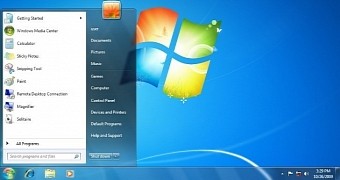Microsoft will retire Windows 7 in less than a year, as the company will stop offering extended support for the 2009 operating system on January 14, 2020.
This means that Windows 7 devices will be left unguarded should any vulnerabilities be discovered, and there’s no doubt this thing is going to happen because, as I said before, Windows versions share a large part of the code and security flaws in one of them also exist in the others.
Earlier this week when I announced the last one year of support for Windows 7, I told you that the January 2020 milestone represents a huge opportunity for Microsoft to focus all of its efforts on Windows 10.
And without a doubt, Microsoft hopes that by killing off Windows 7, users would migrate en-masse to Windows 10, which is the most logical choice in the long term.
Microsoft also offers support for Windows 8.1, but it goes without saying that Windows 10 is the recommended version, especially for enterprises which would benefit from longer support when performing the upgrade.
While at first glance the choice isn’t really that hard for home users, as I see it right now, those still running Windows 7 need to choose between staying with this OS version, upgrading to Windows 10, or going the non-Windows way and migrating to Linux.
Needless to say, Apple’s macOS could also be the destination that some could pick, but given the high costs of a MacBook, for instance, it’s hard to believe too many people would go this route.
So technically, it all comes down to Windows 7, Windows 10, or Linux.
Without support, staying with Windows 7 isn’t quite the most recommended option, especially because this would mean that any vulnerabilities in the OS would remain unpatched and exploits would become more efficient against computers still running it.
Windows 7 won’t just disappear overnight, and applications will continue to work on it, though sooner or later, more and more developers would concentrate their efforts on Windows 10 and leave the 2009 OS version behind. So at some point in the future, everyone would eventually have to choose between Windows 10 and Linux.
Windows 10, on the other hand, isn’t everyone’s cup of tea, especially because of the modern experience that it relies on. Windows 7 is the last operating system that was offered without a modern environment, as it’s the case of Windows 8.1 and Windows 10, so the transition to the latter could be overwhelming for some.
On the other hand, Windows 10 comes with improved security, new features, and lots of updates all across the operating system. It’s also Microsoft’s recommended choice, and it receives updates twice every year. It has the same system requirements as Windows 7, so you shouldn’t notice any performance slowdown.
And last but not least, Linux. The open-source world has improved a lot lately, and it’s now a lot more user-friendly than it was 10 years ago. Distros like Ubuntu and Linux Mint are so easy to use, and some even offer tools that are specifically aimed at users coming from Windows.
Linux is somewhat more secure than Windows, though this platform isn’t entirely hackerproof either. However, given its limitations in the gaming world, moving to Linux could be impossible for gamers too, which makes Windows pretty much the only destination.
And now it’s your turn. With the clock already ticking, what’s your next stop after Windows 7? Will you stay with Windows or switch to Linux? Let us know in the box after the jump.

 14 DAY TRIAL //
14 DAY TRIAL //